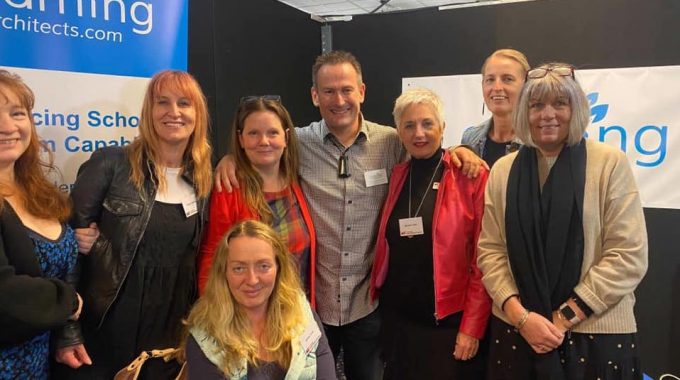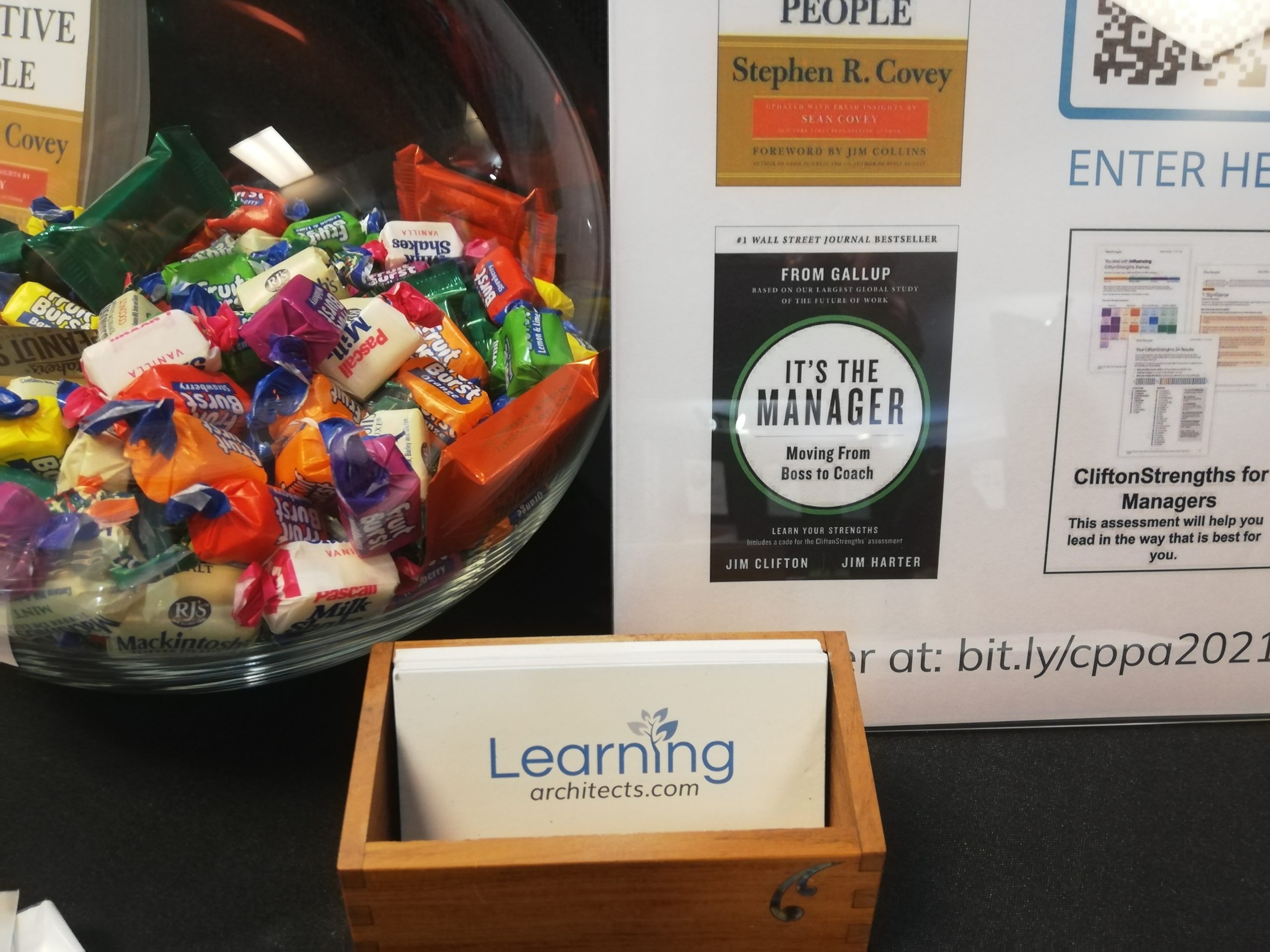Creating an inclusive, equitable future

'Sowing Seeds for the Future’, the conference themes were Equity and inclusion, Futures, and Wellbeing
I’ve just spent two days at Addington Raceway as one of the sponsors of the Canterbury Primary Principals Association 2021 leadership conference. I always enjoy an opportunity to reconnect and share ideas with so many passionate educators from the Waitaha region and beyond in one place.
Entitled ‘Sowing Seeds for the Future’, the conference themes were Equity and inclusion, Futures, and Wellbeing and there were some interesting discussions and presentations on these topics. Keynotes included Dr. Cheryl Doig from Think Beyond, Kaila Colbin from Boma, Dr. Hana O’Regan from Core Education, and Sir Ian Taylor from Animation Research as the conference closing keynote.
I thought it was an extremely well designed programme and while I spent much of my time topping up the lolly jar and chatting to people about how we can support educators to sow the seeds for the future, I was fortunate enough to get a chance to listen to most of the presentations. Here are some reflections…

The Good Ancester
Setting the scene as the opening speaker, Cheryl laid down a challenge for us to be good ancestors, with her speech based on the work of Roman Krznaric (From: The Good Ancestor: How to think long term in a short term world).
Linking Krznaric’s thinking to her work as a futurist, Cheryl talked about how ‘futures’ work is informed by the past and how the seeds of the future are born in initiatives that already exist in some way, shape or form. She shared some interesting research from Inspiring the Future Aotearoa which illustrates how children’s aspirations may be mismatched with future needs, how they are influenced by gender stereotypes and how this presents an opportunity for schools to broaden childrens’ views of what professions are possible. Thanks Cheryl for pointing out those links from the past to the future.
I am so pleased I was able to attend this conference – it made an impact on me. Each of the keynotes joined some dots in my thinking…
Challenging school leaders to design for equity
Hana O’Regan from Core Education opened our eyes to inequities in our education system using four themes:
- Inequity by design
- Impact of inequity
- Designing for equitable outcomes
- Equity and cultural responsiveness
Hana spoke to the fact that unless we work to understand cause and effect, we are just left with the effect of racist policies and practices. Sharing historical examples from the Aotearoa New Zealand education system of racist policies and their impact on learners, families and communities, Hana clearly illustrated how we’ve inherited inequity by design, and how unless we first work to understand the causes of the inequity, then we run the very real risk of believing the narrative we are fed and perpetuating this inequitable system, reinforcing its bias.
Hana finished with challenging school leaders to design for equity and ensure outcomes are not biased against Māori learners. One example she shared is the move to de-stream education, because Māori and Pasifika learners are disproportionately represented in the lower streams, and this has a major negative effect on their educational opportunities. The Aotearoa New Zealand Histories curriculum is another important step in this regard because it gets us talking about our shared history and its effect on our current society and education system. Thanks Hana for a truly inspiring keynote, which you presented in such a way that makes me feel empowered to act.
Who we are is how we lead
The third keynote speaker was Kaila Colbin from Boma International, who discussed themes of vulnerability and courage. One aspect that I found interesting was the idea that ‘who we are is how we lead’ and the call she made for us to first figure out who we are – this very much aligns with the Strengths based leadership approach – which enables people to learn how they can lead best.
Inspire future generations of Kiwi innovators and navigators
The final keynote was Sir Ian Taylor (Ngāti Kahungunu/Nga Puhi) who wrapped up the themes of the conference in such a positive and inspirational way. He highlighted how early Polynesian navigators are lauded by many anthropologists as one of the greatest achievements of all human history.
Sir Ian showed how the successes of these early migrations link to the innovative work of Animation Research and how 3D visualisation technology has been created by the partnership of Māori and Pakeha. Maatauranga, the project his team has created, is such an inspiring resource for Aotearoa New Zealand schools to use to inspire future generations of Kiwi innovators and navigators! Thanks Sir Ian, you were truly inspirational!
So much inspiration in two days
As you can tell, I found there to be so much inspiration in two days. And so where will this learning take me? Given that my whole philosophy is about putting theory into practice and turning thoughts into action, I am going to take the following action:
- Continue educating myself and encouraging my team to do likewise, so that we can more fully understand the causes of bias in our education system, and help our schools to do the same, so we can dismantle them and create an equitable future for all learners.
- Put a particular focus on helping ensure that the teachers and leaders we work with understand and are confident to use the Aotearoa NZ Histories curriculum which is such an important new part of our curriculum, and forms a practical platform for turning good intentions into positive actions.
I am so pleased I was able to attend this conference – it made an impact on me. Each of the keynotes joined some dots in my thinking, and Hana’s presentation in particular – which I found challenging and somewhat confronting but hugely valuable, made me see the need to sew and nurture the necessary seeds to break down system racism in Aotearoa’s education sector, and how I can use my influence to help do this to help create a future that is inclusive and equitable for every learner in Aotearoa New Zealand.
Talk to us about how PLD can make a real difference to your
community through refining your local curriculum design

Facebook Comments